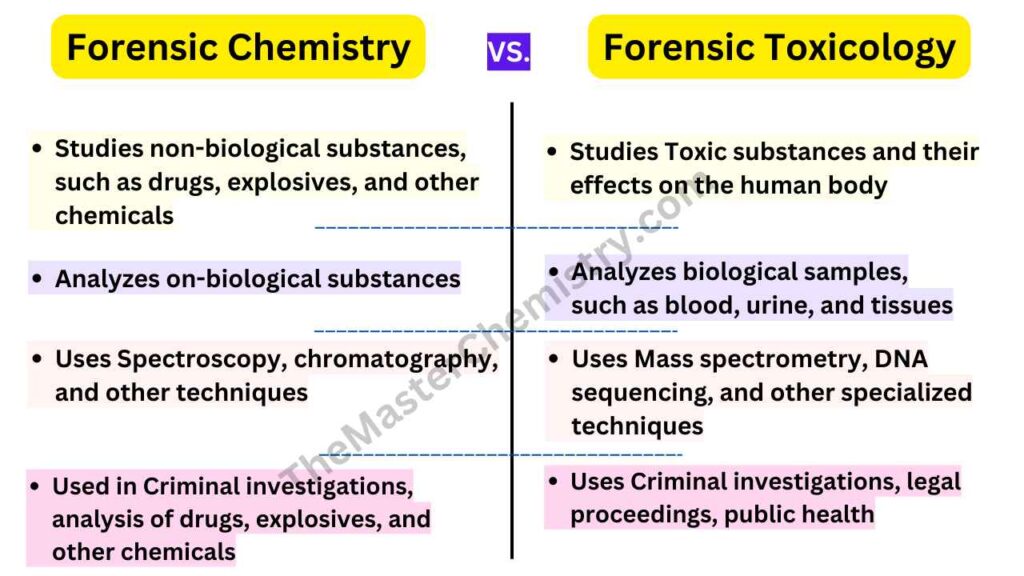Forensic chemistry and forensic toxicology are two distinct fields within the larger discipline of forensic science and chemistry. While they both involve the analysis of substances and materials in a forensic context, they have some key differences:

1: Scope of study
Table of Contents
Forensic chemistry focuses on the analysis of non-biological substances, such as drugs, explosives, and other chemicals. Forensic toxicology, on the other hand, focuses on the analysis of toxic substances and their effects on the human body.
2: Types of substances analyzed
Forensic chemistry typically involves the analysis of non-biological substances, such as drugs, explosives, and other chemicals. Forensic toxicology, on the other hand, involves the analysis of biological samples, such as blood, urine, and tissues, to determine the presence and potential effects of toxic substances.
3: Analytical techniques
Forensic chemists and forensic toxicologists may use some of the same analytical techniques, such as spectroscopy and chromatography, to identify and quantify substances. However, forensic toxicologists may also use specialized techniques, such as mass spectrometry and DNA sequencing, to analyze toxic substances in biological samples.
4: Applications
Forensic chemistry has a wide range of applications in criminal investigations, including the analysis of drugs, explosives, and other chemicals. Forensic toxicology, on the other hand, is primarily focused on the analysis of toxic substances and their effects on the human body, and has applications in criminal investigations as well as legal proceedings and public health.
Overall, while both forensic chemistry and forensic toxicology involve the analysis of substances in a forensic context, they have different scope of study and focus on different types of substances and techniques.
Below is the table that gives a concise overview of differences between forensic chemistry and forensic toxicology.
| Difference | Forensic Chemistry | Forensic Toxicology |
| Scope of study | Non-biological substances, such as drugs, explosives, and other chemicals | Toxic substances and their effects on the human body |
| Types of substances analyzed | Non-biological substances | Biological samples, such as blood, urine, and tissues |
| Analytical techniques | Spectroscopy, chromatography, and other techniques | Mass spectrometry, DNA sequencing, and other specialized techniques |
| Applications | Criminal investigations, analysis of drugs, explosives, and other chemicals | Criminal investigations, legal proceedings, public health |